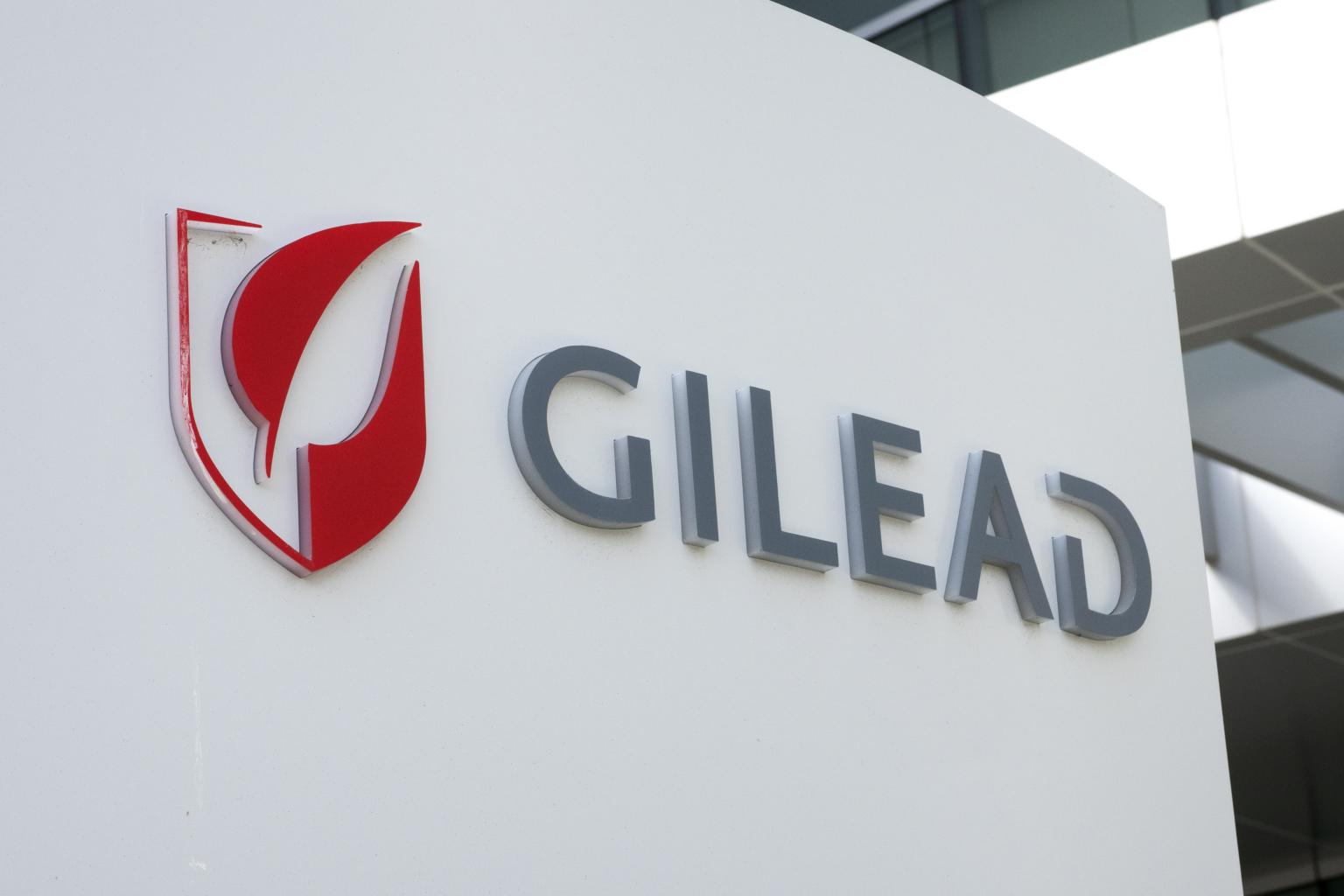Gilead CEO says more than 50,000 remdesivir courses ready to ship
Sign up now: Get ST's newsletters delivered to your inbox

Despite the excitement, the remdesivir data is still highly preliminary, with data from the US-run trial only shown in a press release.
PHOTO: EPA-EFE
Follow topic:
NEW YORK (BLOOMBERG) - Gilead Sciences Inc chief executive officer Daniel O'Day said there are more than 50,000 courses of the company's experimental Covid-19 therapy, packed in vials and ready to ship as soon as the drug is authorised for emergency use by US regulators.
He made the comments in an interview hours after the National Institute of Allergy and Infectious Diseases director Anthony Fauci said a US-run trial of the drug, remdesivir, met its overall target, helping patients recover faster. The potential for the first effective coronavirus treatment sent stock markets soaring on Wednesday (April 29).
Mr O'Day, 55, said the company had been in constant communication with regulators at the Food and Drug Administration, and these communications have picked up in intensity in the last few days as the results of big trials started to roll in.
In the meantime, many scientists have urged caution about results from fast-moving studies in the middle of the outbreak.
While a formal approval would likely take months and require far more robust results than what the company has revealed so far, during the outbreak the FDA has shown a willingness to clear medical products for emergency use with far less data than usual.
"Our teams are working earnestly to progress the most rapid approval that makes sense for the FDA," said Mr O'Day. "They are in the review process and obviously it is their decision, and we are working closely with them."
Mr O'Day said he could not comment on the timing or likelihood of a potential approval.
In a letter posted online Wednesday night, Mr O'Day said the company was "working to build a global consortium of pharmaceutical and chemical manufacturers to expand global capacity and production. It will be essential for countries to work together to create enough supply for people all over the world."
Despite the excitement, the remdesivir data is still highly preliminary. Data from the US-run trial has been shown only in a press release, and none of the details have been published in a scientific journal.
And confusingly, also on Wednesday, a second smaller trial from China was published in The Lancet, showing remdesivir did not help patients get better, faster. That trial was stopped early after it failed to enrol enough patients.
Wild roll-out
In a highly unusual move, the first notice of the successful US government trial came when Gilead put out a press release in the early morning, hours before the NIAID's Dr Fauci publicly confirmed the result was positive.
Gilead sits on a committee overseeing the US trial, Mr O'Day said, and was informed soon after the preliminary results came in. Once the National Institutes of Health told doctors conducting the trial of the result, Gilead felt it needed to get the news out quickly to the public. The federal government wanted to wait until later in the day, so Gilead went first.
"It was all very quick," Mr O'Day said. "We acted very ethically."
Mr O'Day said the company is also in talks with US government agencies on how to allocate the limited supply of the drug. He expects the drug to be reserved for the most severe cases initially.
The Foster City, California-based company has been working for months to increase the supply of the hard-to-manufacture drug, and has said it hopes to make enough for at least a million patients by the end of the year.
The company also shared results from a trial on Wednesday showing that treating severe Covid patients for five days with remdesivir was as good as a 10-day course. The shorter course would be easier on patients and should allow the company to stretch the supply further.
The current version of the drug is infused, which would make it less convenient to use in milder patients who are not hospitalised. Mr O'Day said Gilead scientists are devising an inhaled formulation of the drug that would allow patients to breathe the medicine directly into their lungs.
"We are moving with speed on it," he said. He said he could not give a timeline of when patient trials of the inhaled form would begin.

